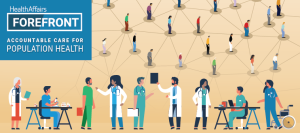
Blog Entry
Next Steps For Engaging Specialty Care In ACO Models
Published date
Topics
This article is part of the Specialist Engagement in Population-Based Payment Models project, supported by Arnold Ventures.
As we described in Part 1 of this article, specialty care providers have had limited opportunities to date for engagement in accountable care models, such as accountable care organizations (ACOs), despite their critical contributions to patient care. This is a missed opportunity for payment reform, given the growing breadth and reach of ACOs and the growing range, potential health impacts, and costs of specialty care services.
Further progress is urgently needed. As the range of specialty care services continues to increase, so has the risk of fragmentation, with a large proportion of referrals never resulting in follow-ups. Current accountable care programs have not solved this problem: Although specialists accounted for 66 percent of ACO medical providers in the 2022 Medicare Shared Savings Program (MSSP)—the foundational Medicare ACO program—they are often unaware of their participation, let alone actively and effectively engaged. Moreover, low specialty participation has implications for health equity. With complex conditions often more prevalent in traditionally underserved populations, engaging specialists in accountable care models is one important tool to reduce health disparities.
In this article, we offer concrete steps toward a comprehensive vision of how accountable care models can achieve effective specialty care engagement, drawing on recent work by Duke-Margolis and others related to specialty care, and our framework for specialty care described in Part 1. Our goal is to support specialty engagement by providing cross-cutting considerations and innovative examples that could be implemented more broadly with policy change and guidance. Our recommendations aim to strengthen Center for Medicare and Medicaid Innovation (the Innovation Center) pilot reforms in the traditional Medicare program—including ACO Realizing Equity, Access, and Community Health (REACH) model, the new Making Care Primary model, and the potential future specialty payment models—as well as permanent ACO programs such as MSSP. We also describe ways to learn from and align these traditional Medicare reforms with accountable specialty care initiatives that have started to grow in Medicare Advantage, commercial insurance, and state Medicaid programs.
Duke-Margolis Authors

Katie Huber, MPH
Policy Research Associate

Frank McStay, MPA
Assistant Research Director

Mark McClellan, MD, PhD
Director of the Duke-Margolis Institute for Health Policy
Robert J. Margolis, MD, Professor of Business, Medicine and Policy
Margolis Executive Core Faculty